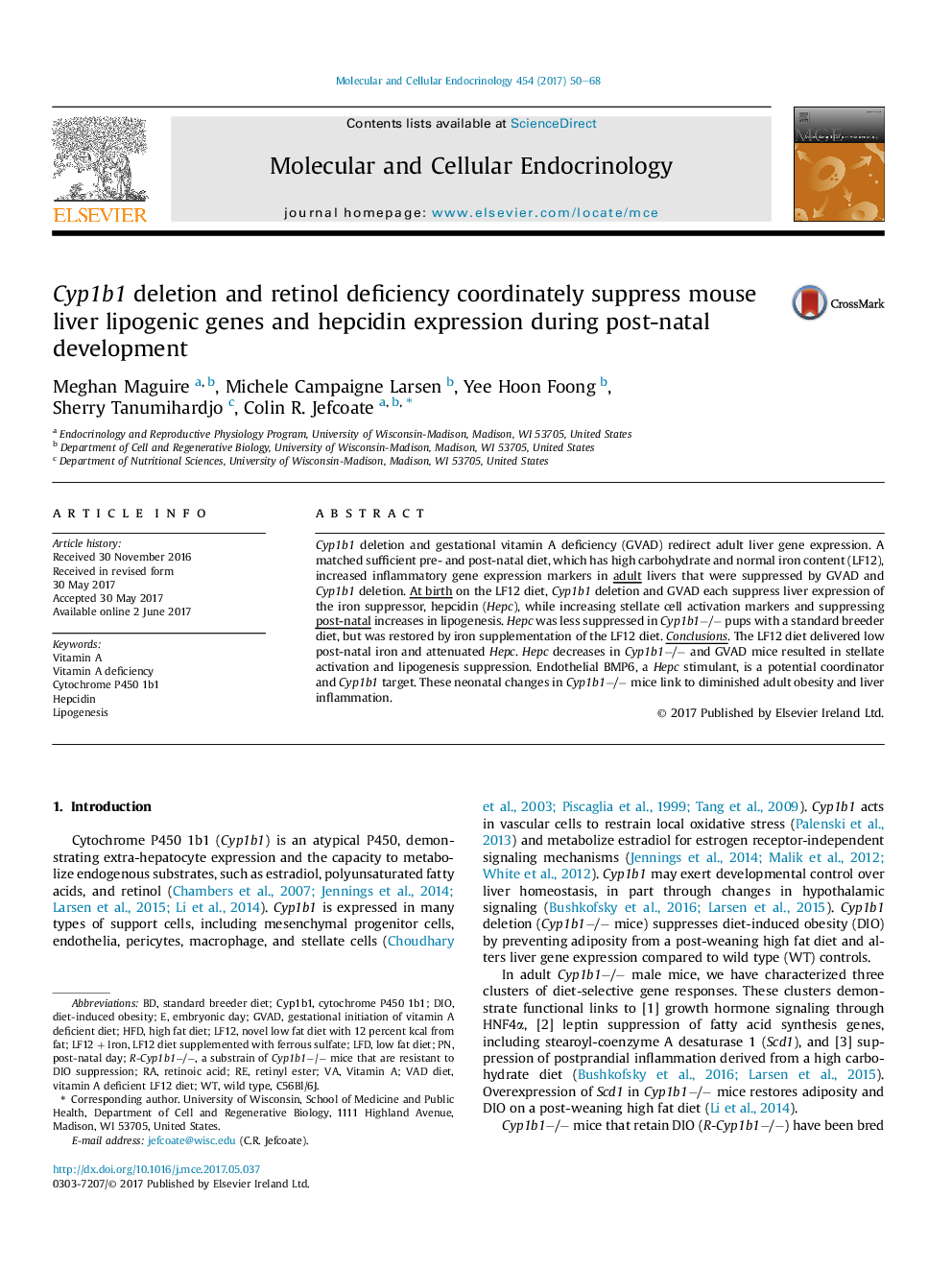| Article ID | Journal | Published Year | Pages | File Type |
|---|---|---|---|---|
| 5534115 | Molecular and Cellular Endocrinology | 2017 | 19 Pages |
â¢Cyp1b1 and retinol maintain hepcidin expression in the neonatal liver.â¢Hepcidin suppression in Cyp1b1â/â mice is reversed by retinol depletion.â¢Cyp1b1â/â and GVAD activate stellate cells (PN0) and suppress lipogenesis (PN21).â¢These responses in Cyp1b1â/â mice are reversed by retinol depletion.â¢Each deficiency prevents glucose-induced oxidative stress by lowering Ppp1r3g.
Cyp1b1 deletion and gestational vitamin A deficiency (GVAD) redirect adult liver gene expression. A matched sufficient pre- and post-natal diet, which has high carbohydrate and normal iron content (LF12), increased inflammatory gene expression markers in adult livers that were suppressed by GVAD and Cyp1b1 deletion. At birth on the LF12 diet, Cyp1b1 deletion and GVAD each suppress liver expression of the iron suppressor, hepcidin (Hepc), while increasing stellate cell activation markers and suppressing post-natal increases in lipogenesis. Hepc was less suppressed in Cyp1b1â/â pups with a standard breeder diet, but was restored by iron supplementation of the LF12 diet. Conclusions. The LF12 diet delivered low post-natal iron and attenuated Hepc. Hepc decreases in Cyp1b1â/â and GVAD mice resulted in stellate activation and lipogenesis suppression. Endothelial BMP6, a Hepc stimulant, is a potential coordinator and Cyp1b1 target. These neonatal changes in Cyp1b1â/â mice link to diminished adult obesity and liver inflammation.
